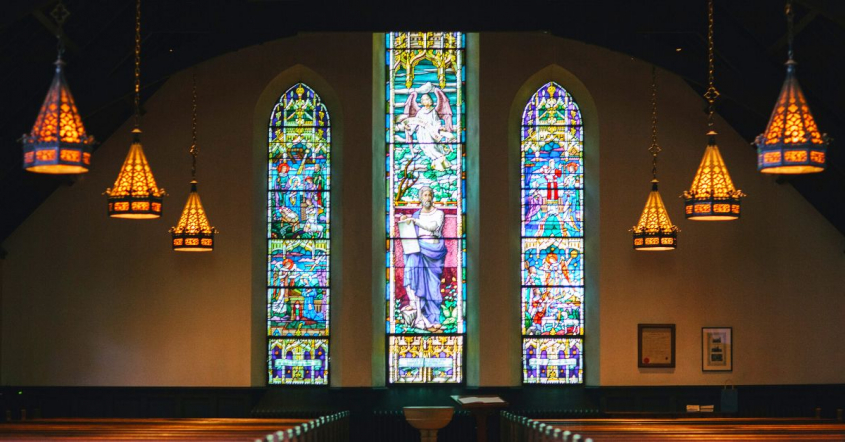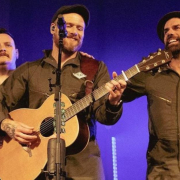Does Church Matter?
By: Brian Harris
I’ve just finished teaching a week long intensive called “Denominational Distinctives.”
It’s an “all things Baptist” unit – and most of the dozen students who were in the class are well on their way to becoming Baptist pastors. Pleasingly while most make it clear they think the age of denominations is long past and come to the unit a little resentfully, (it’s obligatory if you are to become a Baptist minister), by and large they land up enjoying it. In fact over the years I have taught it, many have said it turned out to be their favourite unit.
How is it that such an unlikely candidate for “my favourite unit” often walks away with the honours?
Answer: While people aren’t interested in denominations, most Christians are interested in the kind of church they would like to see birthed – one that genuinely points to Jesus and helps people grow in their relationship and obedience to him, one that makes a positive difference in the world.
What is the Ideal Church?
We are not the first generation to have pondered the question of what such a church would look like. After all, if you dive into Baptist history you discover a group who were besides themselves with frustration at the church status quo of their day. The 1555 Peace of Augsburg had reached a religious truce with its decision “whose realm, whose religion” (or, you follow the religion of your ruler – no exceptions). It meant there was a state church – be it of the Catholic, Reformed or Lutheran variety. Which it was depended on the ruler of the state you lived in. Dissent or genuine freedom of thought was not OK, and consequently those who took their faith seriously (usually more seriously than their ruler) ran into a fair few problems.
The early anabaptists interpreted the Bible’s teaching on baptism to mean that you should only be baptised after you came to a personal faith in Jesus, and therefore baptised people after their conversion. They were accused of re-baptising (for those being baptised had been baptised as infants), an act which was considered both heretical and treasonous. A fair few were drowned with the crowd chortling, “if they want water, they shall have it.” Many others were imprisoned for lengthy periods. Such passion and such commitment to a cause few pay attention to today.
While there is some dispute as to who the early Baptists were (the 16th century Anabaptists or the 17th century English Separatists), both groups were insistent that a church should be a “believers church” – one where all those who were members were in covenant with each other and would see the journey of discipleship through, be that through supporting the families of those who had been imprisoned for their faith, or helping financially if members couldn’t find employment because they were considered heretics or… the list went on and on. This was no token commitment to each other – no “well I’ll see you in a month of two when I next have a free Sunday and can make a church service – that is, if it’s one of the weeks you also attend, and that’s not very likely.”
Early Baptists Would Have Been Appalled
Let’s face it, few local churches see themselves as being made up of people who have covenanted themselves to each other. Attenders are there because the church currently ticks enough of the music, children’s ministry, youth work or preaching boxes, and if it stopped doing so – well there are others who do, so catch you later. Early Baptists would have been appalled. They didn’t consider church to be about my preferences… after all, did they really prefer to be thrown into jail or to face punishing social ostracism?
In her book The Great Emergence, Phyllis Tickle suggests that about once every 500 years the church faces change of momentous magnitude – be it around 500 with the fall of Rome, 1054 with the Great Schism between the church in the East and the West, the Protestant Reformation of 1517 or now. She likens such an era to a giant garage sale, where we have to decide what really matters and must be held on to, and what can be sold off. With the proceeds of the sale, what new things could and should be added? It’s a fascinating question. The class dived into it with gusto. They didn’t always see things the same way, but they were pretty firm on this.
The early Baptists were right. The church needs to be made up of genuine disciples – people firmly committed to following the way of Jesus – even if the music is lousy, the time inconvenient, and the congregation a tad unusual. And we need to enter into the ministry and witness of our local church with all our heart… and hey, if that sounds a little much, don’t worry. No one is likely to drown you or to throw you into jail; so if you complain too loudly, don’t expect early Baptists to smile back sympathetically.
Article supplied with thanks to Brian Harris.
About the Author: Brian is a sought-after speaker, teacher, leader, writer and respected theologian who has authored 6 books. After 17 years as principal of Perth’s Vose Seminary, Brian is now founding director of the AVENIR Leadership Institute, fostering leaders who will make a positive impact on the world.
Feature image: Photo by Karl Fredrickson on Unsplash










